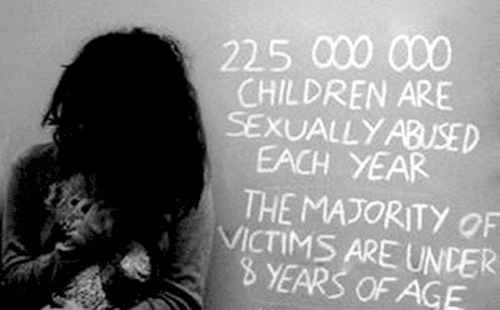What to Ask a Youth Organization
Parent’s Can’t Assume All Organizations are Safety-Aware
Whether a school, church, sports team, or after-school group, many parents trust their child’s health and safety to some organization. Offering lessons in teamwork, leadership, and community, youth organizations allow children the chance to practice important social skills under supervision.
However, while a youth organization puts heavy emphasis on child safety, kids are often left unsupervised, with adults that may or may not have been screened, or even had safety training to recognize inappropriate behavior by others.

In recent years, some of the most prominent youth organizations have been ensnared in child sex abuse scandals. While circumstances differ, the organizations accused of sheltering child predators have shown a similar lack of prevention and preparedness which created the opportunity for children to be victimized.
These incidences of institutional child sex abuse can occur at any religious, educational, or extracurricular organization that provides services and activities for young people. So, how can parents be sure that a youth organization is as committed to protecting children from potential predators as well?
Child Predators Look For Lax Protocol
Blaming only the offender is often easier than holding an institution accountable. But child molesters and sexual predators look for organizations that fail to enact rigid safety protocols. The most prevalent policy lapses include background checks and awareness training – even in schools.
A study conducted several years ago by the U.S. Department of Education revealed child abuse by public school teachers was nearly on par with those of Catholic priests.
Like other organizations, school administrators are often poorly trained to identify sexual abuse. Often a teacher suspected of child sex abuse will be moved to another school or district, with administrators claiming that they cannot certain of allegations are true, and action would destroy the teacher’s life.
Schools and organizations are equally worried about the negative publicity which would come with acknowledging the allegations. Protecting the offender and protecting themselves sometimes take priority over protecting children.
As a parent, you expect organizations to ensure the safety of all children in their care. This includes performing rigorous background checks on all staff members and implementing safety protocols that limit the unsupervised contact adults have with children. So how can you demand it?
It’s Up to You Keep Your Kids Safe?
As a parent, you are one of the most important links in the chain of prevention. By stepping up and speaking to youth-serving organizations in your community about their safety standards, you have the power to protect your child.
To be proactive, you have to ask the right questions when evaluating each youth organization. It might be uncomfortable at first, but every organization should be willing to talk about their sexual abuse prevention measures.
If they aren’t?
Seek another organization if they are unwilling or unprepared to create a safer environment. Know that by making your concerns heard, you’re potentially protecting countless others against child sexual abuse as well.
Important Questions to Ask
How are Employees and Volunteers Screened?
Careful screening and selection of potential employees and volunteers isn’t convenient or easy, but it it’s the first step in hiring safe candidates. Organizations should screen candidates in a variety of ways, including an application, personal references and a criminal background check.
Don’t accept excuses and feel confident making yourself clear that you don’t want any adult who has not been properly screened caring for your child.
Is There a Policy Limiting One Adult-One Child Situations?
Organizations should ensure that employees keep inline with all protection policies, and do not engage in high-risk behavior. They should also have clearly defined child protection policies.
Over 80% of abuse incidents occur in one-adult, one-child situations. One-on-one time is important to a child’s emotional growth and development, but does not have to happen behind closed doors.
Are There Clear Procedures for Reporting Suspicions or Incidences of Abuse?
All fifty states require that professionals that work with children report reasonable suspicion of abuse, meaning that youth-serving organizations should have clear reporting procedures. Organizations should take any violations of these seriously, and evaluate them without secrecy. Make sure employees know and feel comfortable with these procedures, since they’re the most likely to spot anything suspicious.